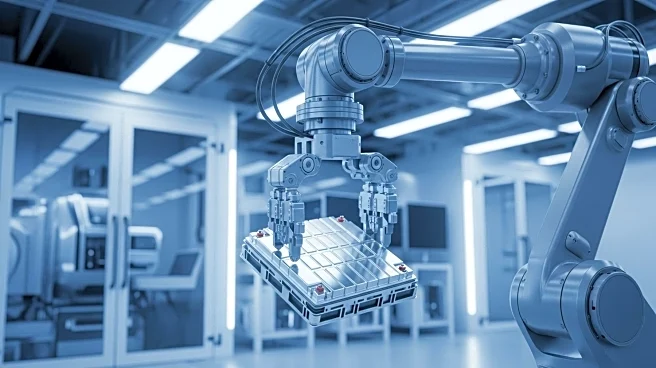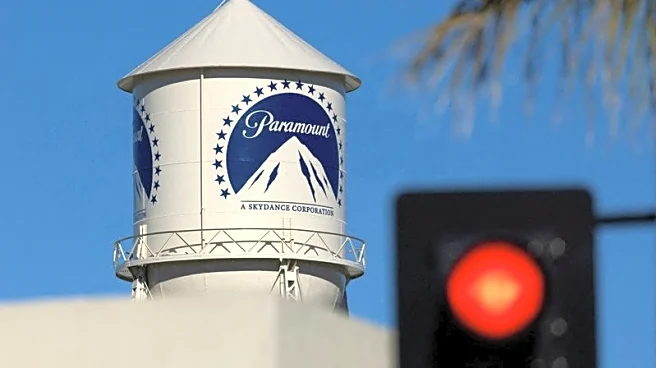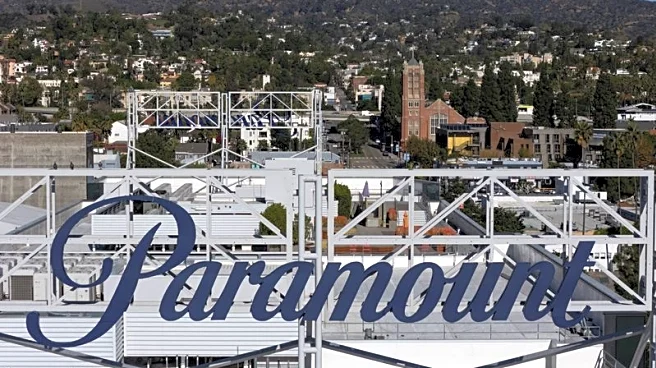What's Happening?
Recent U.S. immigration enforcement actions have revealed significant vulnerabilities in the labor and material supply chains of electric vehicle (EV) battery producers, particularly affecting companies like LG Energy Solution and Hyundai Motor Group. The raids, primarily targeting agriculture and construction sectors, have indirectly impacted EV battery manufacturing by causing labor shortages and raising geopolitical tensions. A notable incident involved a raid at Hyundai's Georgia EV manufacturing site, which disrupted the construction of a joint battery plant with LG Energy Solution. This highlights the fragility of labor-dependent supply chains, as agriculture faces a 27% labor shortage during peak seasons, affecting raw material availability for EV batteries. These disruptions are part of broader U.S. immigration enforcement trends under the Trump administration, focusing on industries reliant on immigrant workers.
Why It's Important?
The implications of these immigration raids are profound for the EV battery industry, as they underscore the interconnectedness of labor, geopolitical, and ethical risks in supply chains. Companies like LG Energy Solution and Hyundai are adopting strategies such as regionalization and vertical integration to mitigate these risks. Their joint venture in Georgia and investment in Indonesia aim to stabilize U.S. supply chains and secure access to essential materials like nickel. However, these efforts also introduce new challenges, including environmental degradation and human rights concerns. For investors, the situation presents a complex landscape where operational resilience, regulatory compliance, and reputational exposure must be carefully considered.
What's Next?
As the EV industry strives to meet decarbonization goals, companies must navigate multifaceted risks to maintain competitiveness. LG Energy Solution and Hyundai's strategic investments in regionalization and material sourcing are steps toward mitigating labor and trade shocks. However, unresolved challenges in ethical sourcing, particularly regarding cobalt and nickel, remain. The U.S. Uyghur Forced Labor Prevention Act has heightened scrutiny on supply chains linked to regions with forced labor risks. Investors will need to assess these companies' strategic agility against ongoing vulnerabilities in labor compliance and material sourcing.
Beyond the Headlines
The ethical sourcing challenges faced by EV battery producers highlight broader issues in the industry, including environmental and human rights concerns. Indonesia's push to dominate the EV battery sector raises questions about deforestation and illegal mining practices. As ESG criteria gain prominence, companies must address these ethical lapses to avoid consumer backlash and investor divestment. The ability to navigate these risks will be crucial for long-term competitiveness in the EV market.










